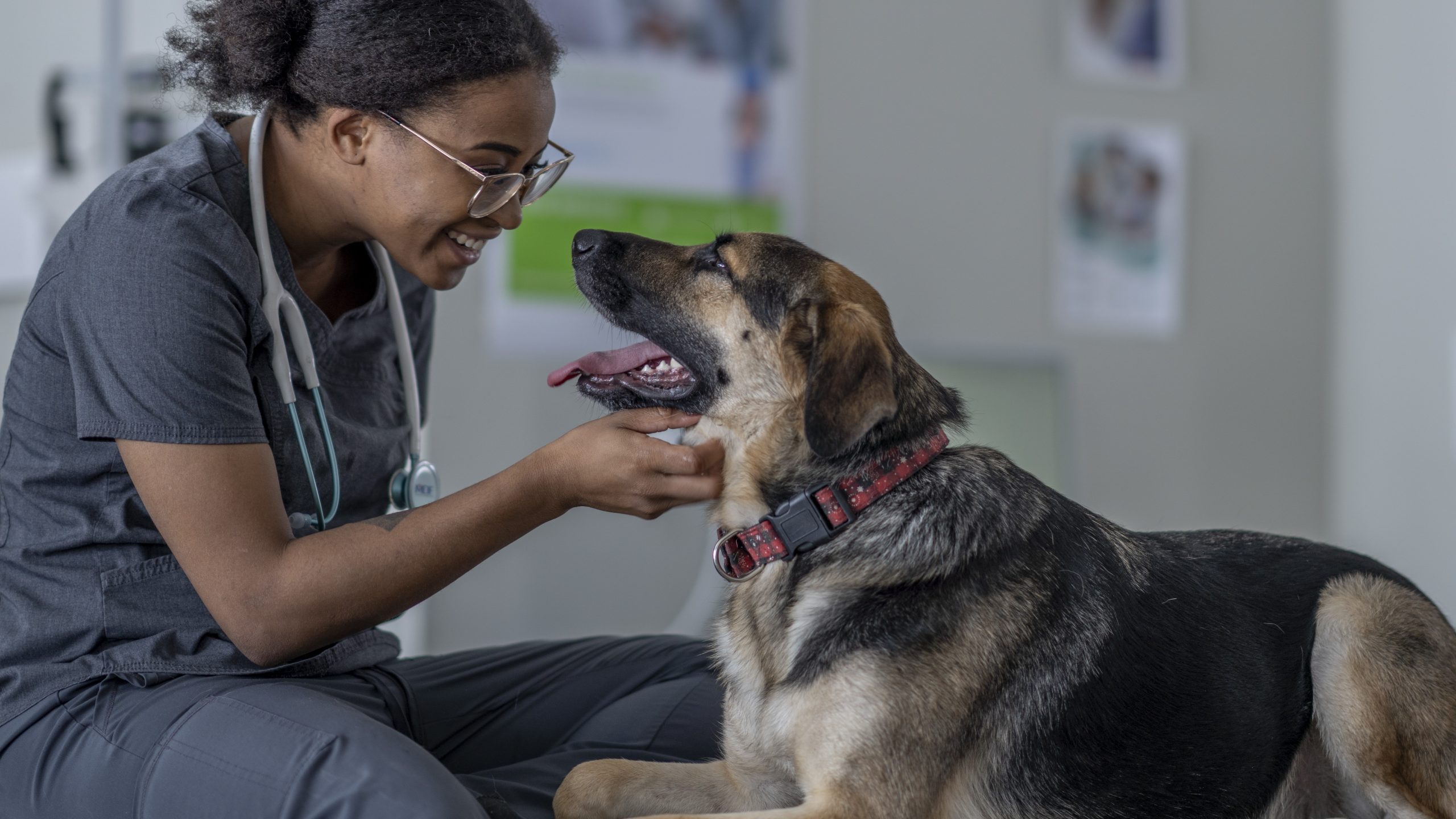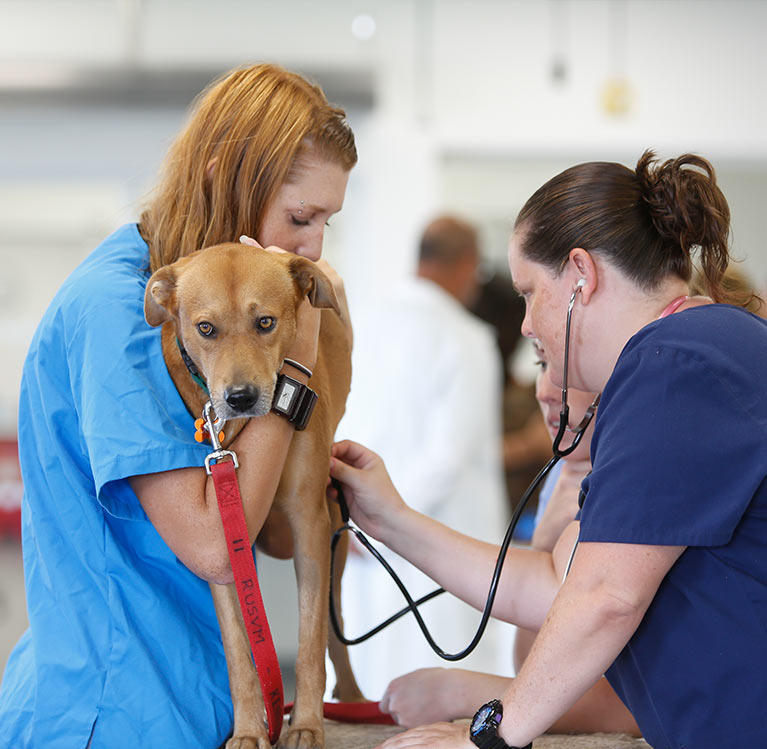Why a Routine Pet Health Checkup is Necessary for Preventative Pet Care
Why a Routine Pet Health Checkup is Necessary for Preventative Pet Care
Blog Article
Vaccination Standards From Your Relied On Veterinarian
Inoculation guidelines given by your relied on veterinarian play a vital role in protecting your pet's health and well-being. In addition, attending to usual misconceptions surrounding vaccinations can further enhance family pet owners' self-confidence in these preventive steps.

Importance of Vaccinations
Inoculations play a crucial duty in guarding pets against a series of preventable conditions. By stimulating the body immune system to recognize and fight particular microorganisms, vaccines considerably reduce the incidence of transmittable illness that can affect a pet's health and wellness and longevity. Not just do inoculations secure private pets, however they likewise contribute to herd resistance, thus reducing the total occurrence of illness in the pet populace.
Timely vaccinations aid to mitigate the spread of conditions such as rabies, parvovirus, and distemper, which can have extreme consequences for both pets and people. Inoculations are usually a need for boarding facilities, brushing services, and pet parks, making them important for those that wish to mingle their pets.

Core Injections for Animals
While the specific inoculation requirements of family pets can vary based upon private elements, core vaccines are widely recommended to safeguard versus the most severe and typical diseases (Emergency Vet). Core vaccines are those considered crucial for all animals, no matter of their way of living or geographic place, as they safeguard against highly transmittable and potentially fatal health problems
For pet dogs, the core vaccines include those for canine distemper, parvovirus, adenovirus (liver disease), and rabies. Adenovirus can result in liver condition, while rabies is a zoonotic condition that postures a risk to both humans and pets.
In pet cats, core injections encompass feline panleukopenia, feline calicivirus, feline herpesvirus (rhinotracheitis), and rabies. Feline panleukopenia is a very contagious viral disease that influences the immune system and intestines. Calicivirus and herpesvirus are significant contributors to top respiratory infections in cats, while rabies stays an essential worry for public health and wellness.
Talk to your veterinarian to ensure your family pets get their core vaccinations on timetable.
Non-Core Vaccines Explained
Non-core vaccinations are customized to attend to details risks related to a family pet's setting, way of life, and exposure to certain conditions. Unlike core injections, which are generally suggested for all family pets, non-core injections are considered based on individual scenarios. These vaccines are specifically important for family pets that may encounter click to investigate distinct virus as a result of their geographical location, traveling habits, or activities.
Instances of non-core vaccines include those for Bordetella bronchiseptica, which is connected to kennel cough, and Lyme illness, triggered by ticks. Family pets that regularly connect with other pets, such as those in boarding centers, dog parks, or grooming settings, may take advantage of Bordetella inoculation. In a similar way, if you live in an area where Lyme condition prevails, immunizing versus this condition can be a sensible option for outdoor-loving pets.
Other non-core vaccinations might include those for leptospirosis, canine flu, and feline leukemia, depending on the specific danger variables existing. It is important to have a detailed discussion with your veterinarian concerning your animal's lifestyle and the prospective demand for these vaccines, guaranteeing a customized inoculation approach that best secures your furry buddy.
Inoculation Arrange Overview

As animals develop, it is essential to comply with the recommended booster inoculations. Emergency Vet. For adult pets, core vaccinations are commonly provided each to three years, depending upon the certain vaccination and local regulations. Non-core vaccinations may be advised based on lifestyle aspects and local disease frequency, requiring a tailored method
Routine veterinary examinations are crucial for updating vaccination routines. Your vet can provide guidance on one of the most ideal booster shots for your animal, factoring in age, health and wellness condition, and environmental dangers. By remaining positive and educated, pet dog proprietors can ensure their furry buddies obtain timely and effective inoculations, consequently securing their wellness and well-being throughout their lives.
Usual Misconceptions Concerning Vaccinations
Mistaken beliefs about animal inoculations can bring about complication find out here now and hesitation among pet proprietors pertaining to the booster shot procedure. One widespread myth is that vaccines are unnecessary for interior family pets. While it's real that indoor animals face lower threats, they are not totally immune to illness, as virus can be presented through different means, including human garments and various other family pets.
Another misconception is that vaccines can create the conditions they intend to prevent. In truth, the majority of vaccinations include suspended or attenuated microorganisms, which can not trigger condition in healthy animals. Some animal proprietors also think that their pet dogs need to not be immunized if they are already healthy and balanced; nonetheless, vaccinations are a proactive procedure that aids protect against the start of health problem.
Furthermore, several animal owners are afraid that vaccinations will certainly lead to long-lasting health and wellness issues. The advantages of vaccination-- shielding pet dogs from potentially dangerous conditions-- much surpass the dangers.
Conclusion
In summary, adherence to vaccination guidelines is vital for ensuring the health and wellness and durability of family pets. Core vaccinations offer necessary protection versus serious illness, while non-core vaccinations address certain threats based upon individual lifestyles. Developing a comprehensive inoculation timetable, along with routine veterinary exams, helps with ideal health administration. Resolving common myths bordering vaccinations better reinforces the value of notified decision-making in pet dog treatment. Inevitably, an aggressive technique to vaccinations is essential for maintaining family pet health.
Not only do inoculations safeguard individual animals, but they additionally contribute to herd immunity, therefore minimizing the general frequency of illness in the pet populace.
Mistaken beliefs regarding pet dog vaccinations can lead go to the website to complication and hesitation among pet dog owners regarding the immunization procedure. While it's real that indoor pet dogs face reduced threats, they are not completely immune to illness, as virus can be presented through numerous methods, including human garments and various other animals.
Some animal owners also believe that their pets need to not be immunized if they are currently healthy and balanced; nonetheless, inoculations are a proactive procedure that aids prevent the beginning of illness.
The advantages of vaccination-- protecting pet dogs from potentially deadly diseases-- far outweigh the risks.
Report this page